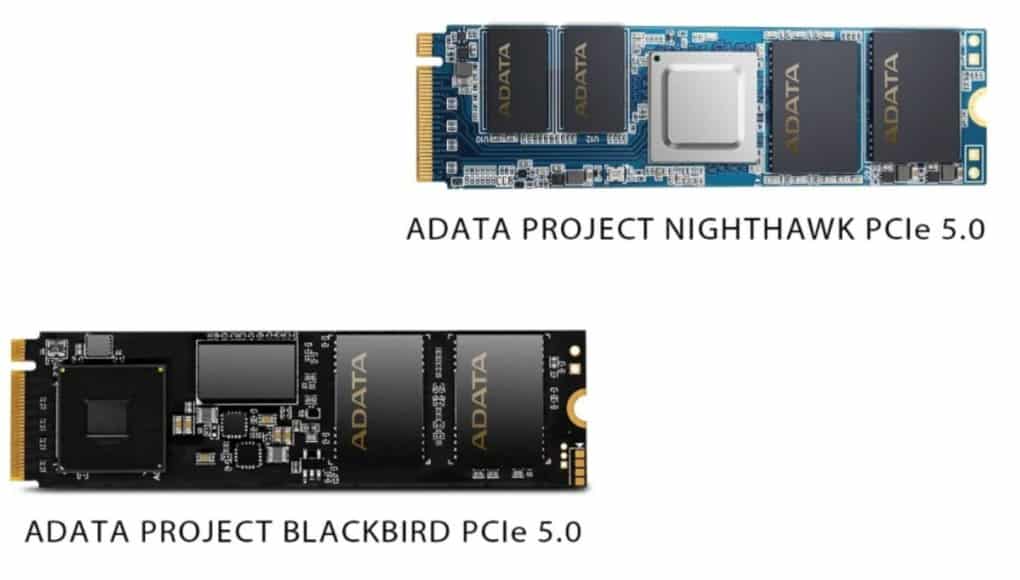Adata XPG: PCI-E 5.0 SSDs and DDR5-7000 memory for next-gen applications

Manufacturer Adata from Taiwan is expanding its XPG portfolio of storage products and confirms the PCI-E 5.0 NVMe SSD, which is probably based on the Project Blackbird design that Adata presented at CES 2022. There’s also new XPG Slayer DDR5 RAM with up to 7,000 claimed MT/s.
Based on information from the ITHome website, it is now becoming more specific with PCI-E 5.0 storage solutions from the Taiwanese manufacturer Adata. He already presented new SSD designs with the code names Nighthawk and Blackbird at CES 2022. Now, Adata is expanding its XPG brand’s storage lineup with PCI Express 5.0 x4 SSDs, arguably based on these designs, and DDR5-7000 RAM.
PCI-E 5.0 M.2 SSDs and new next-gen DDR5 RAM
Adata’s new next-gen SSD comes with NVMe 2.0 compatibility and offers sequential read speeds of 14 GB/s and sequential write speeds of 12 GB/s. The manufacturer also gives its PCI Express 5.0 SSD its own cooling solution. Given the similar color design and the new cooler for the controller, the SSD appears to be the Project Blackbird that was unveiled earlier this year, at least according to Videocardz’s speculation.

Project Blackbird and Project Nighthawk.
Source: Adata
Also worth reading: From Ryzen 7000: MSI with screwless M.2 SSD assembly for some X670 and B650 mainboards
Meanwhile, ITHome explains that the Project Nighthawk PCI-E 5.0 M.2 SSD uses Wisevision’s SM2508 controller. Again, there are 14 GB/s in sequential read and 12 GB/s in sequential write, as well as 1,800K IOPS in random read and 1,600K IOPS in random write. Up to 8 TB are mentioned for the maximum capacity. In addition to the SSD, Adata introduced new XPG DDR5 memory. This should reach speeds of up to 7,000 MT/s and thus be suitable for Intel’s and AMD’s upcoming Core i 13000 and Ryzen 7000 CPU generations, which should support 5,600 MT/s by default.
Source: ITHome via Videocardz
Reference-www.pcgameshardware.de